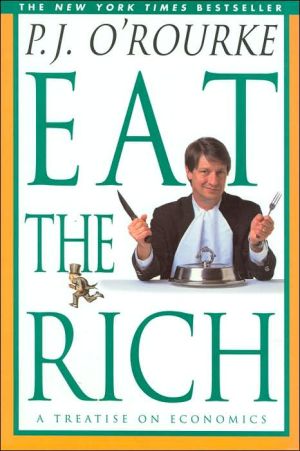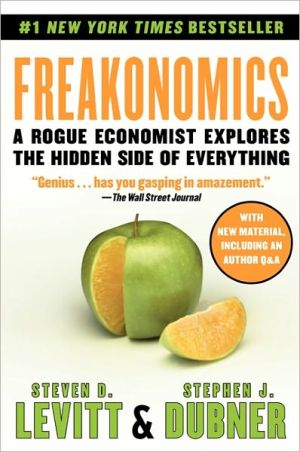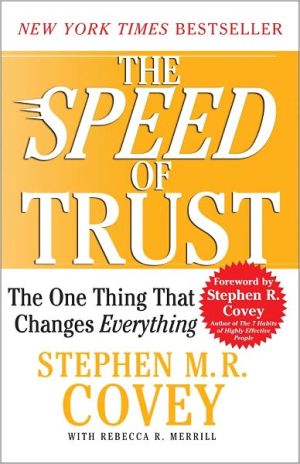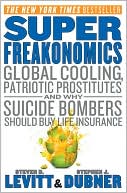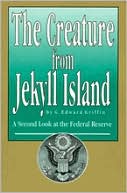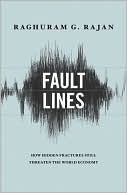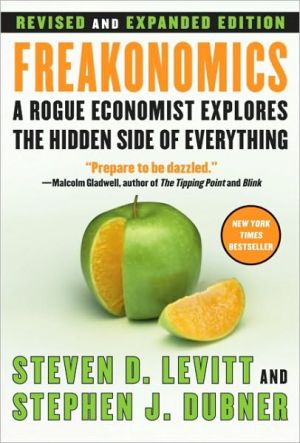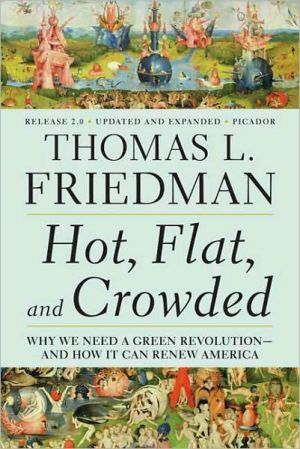Eat the Rich: A Treatise on Economics
In P.J. O'Rourke's classic best-seller, Parliament of Whores, he attempted to explain the entire United States government. Now, in his most ambitious book since, he takes on an even broader subject, but one that is dear to us all - wealth. What is it? How do you get it? Or, as P.J. says, "Why do some places prosper and thrive, while others just suck?" The obvious starting point is Wall Street. P.J. takes the reader on a scary, hilarious, and enlightening visit to the New York Stock Exchange,...
Search in google:
In the tradition of his contemporary classic Parliament of Whores, the man who The Wall Street Journal calls "the funniest writer in America" is back with Eat the Rich, in which he takes on the global economy. P. J. O'Rourke leads you on an hysterical whirlwind world tour from the "good capitalism" of Wall Street to the "bad socialism" of Cuba in search of the answer to an age-old question: "Why do some places prosper and thrive, while others just suck?" With stops in Albania, Sweden, Hong Kong, Moscow, and Tanzania, P.J. brings along his incomparable wit and finds hilarity wherever he goes. New York Times Book Review - Peter Passell Eat the Rich is a delightful collection of anecdotes and one-liners. Those who insist on leavening their entertainment with redeeming social significance can always watch public television.
1Love, Death, and Money12Good Capitalism: Wall Street113Bad Capitalism: Albania364Good Socialism: Sweden565Bad Socialism: Cuba776From Beatnik to Business Major: Taking Econ 101 for Kicks1047How (or how not) to Reform (Maybe) an Economy (if there is One): Russia1248How to Make Nothing from Everything: Tanzania1609How to Make Everything from Nothing: Hong Kong19910How to have the Worst of Both Worlds: Shanghai21611Eat the Rich231
\ From Barnes & NobleOur Review\ September 1998 \ P. J. O'Rourke is confused about economics. "Why," he wonders in the first paragraph of his new book, Eat the Rich, "are some places prosperous and thriving while others just suck?" As he gropes for an answer to this question, he comes to a staggering realization: Like most of us, he doesn't know diddly about money. After a few abortive attempts at the textbooks he managed to avoid throughout college, he quickly sees that the only way to educate himself will be to go to those places where he could actually see economics in action -- to investigate societies with all different kinds of economic systems, some that have succeeded and others that are complete disasters, and discover what makes them tick. A global economics field trip!\ If there is one thing you can trust P. J. O'Rourke to do particularly well (as anyone who has read his contributions as the foreign affairs desk chief of Rolling Stone can attest), it is to go to strange places, hang out with some locals, and make clever, biting remarks about the native population and its quaint and/or exotic habits of living. For this kind of travel writing, there's simply no one better. O'Rourke is also particularly good with the general slandering of politics and the machinations of those in power. In Eat the Rich he combines these two strengths, and the result is a tour de force -- perhaps the funniest book he's ever written.\ And so he's off; it's a pilgrimage, really, to cure himself of economic ignorance. First stop, naturally: Wall Street, for an example of "good capitalism." He spends some time on the floor of the New York Stock Exchange, and his description of its ordered chaos is destined to be a classic. He also interviews financial types of various castes, to get a feel for the terrain. As always, he's fast and loose with an analogy: "'People put their money where their thoughts are,' said one investment banker I interviewed. This means that there are a a lot of men who are, so to speak, in financial topless bars, sticking millions of dollars into the G-strings of lap-dancing debts and equities."\ In the next chapter he contrasts this with a trip to Albania -- "bad capitalism" at its very worst. Where as Wall Street as the standard-bearer of capitalism is epitomized by the NYSE, Albania, whose newly-free market was brought to its anarchic knees in 1997 by the collapse of multiple crooked pyramid schemes, is epitomized by the pandemonium of Skenderbeg Square in the center of Tirana, the Albanian capital.\ "Sheshi Skenderbej" is an all-concrete piazza the size of a nine hole golf course. A dozen streets empty into it. From each street come multitudes of drivers going as fast as they can in any direction they want. Cars head everywhere. Cars box the compass. The pull U-ies, hand Louies, make Roscoes do donuts. Tires peel and skid. Bicycles scatter. Pushcarts jump the curbs. Brakes scream. Bumpers whallop. Fenders munch. Headlight glass tinkles merrily on the pavement. There's a lot of yelling.\ Arming himself with a local guide he tries to get to the bottom of how Albania's economic situation has made it what it is. Then he does the same in Sweden and Cuba (good socialism and bad socialism), Russia, Tanzania, Hong Kong, and Shanghai, with several pauses in between to assess the lessons he's learned and the damage he's seen.\ One could easily conclude that O'Rourke decided to write this book in order to score free vacations to some unusual locales; whether or not that's true, I couldn't care less. His descriptions of these places and their spastic economies are priceless. Eat the Rich is part travelogue, part treatise on the politics of money, and one of the funniest books you will ever read.\ --Olli Chanoff\ \ \ \ \ \ Peter PassellEat the Rich is a delightful collection of anecdotes and one-liners. Those who insist on leavening their entertainment with redeeming social significance can always watch public television. \ —New York Times Book Review\ \ \ Philadelphia InquirerA witty jaunt. . .makes you wish [O'Rourke] had been your economics professor.\ \ \ \ \ Forbes FYIO'Rourke has done the unthinkable: He's made money funny.\ \ \ \ \ Publishers WeeklyHaving chewed up and spat out the politically correct (All the Troubles in the World) and the U.S. government (Parliament of Whores), O'Rourke takes a more global tack. Here, he combines something of Michael Palin's Pole to Pole, a soupcon of Swift's A Modest Proposal and Keynsian garnish in an effort to find out why some places are 'prosperous and thriving while others just suck.'\ Stymied by the 'puerile and impenetrable' prose of condescending college texts, O'Rourke set forth on a two-year worldwide tour of economic practice (or mal-). He begins amid the 'moil and tumult' of Wall Street ('Good Capitalism') before turning to dirt-poor Albania, where, in an example of 'Bad Capitalism,' free market is the freedom to gamble stupidly. 'Good Socialism' (Sweden) and "Bad Socialism" (Cuba) are followed by O'Rourke's always perverse but often perversely accurate take on Econ 101 ('microeconomics is about money you don't have, and macroeconomics is about money the government is out of'). Four subsequent chapters reportedly offer case studies of economic principles, except that Russia, Tanzania, Hong Kong and Shanghai all seem to prove that economic theory is just that. There's lots of trademark O'Rourke humor ('you can puke on the train,' he says of a trip through Russia, 'you can cook tripe on alcohol stoves and make reeking picnics of smoked fish and goat cheese, but you can't smoke'). There's also the feeling that despite (or maybe because of) his lack of credentials, he's often right. O'Rourke proves that money can be funny without being counterfeit.\ \ \ \ \ \ BooknewsA humorous look at wealth--what it is and how to get it. The author begins with Wall Street, then explores the economies of Albania, Sweden, Cuba, Russia, Tanzania, Hong Kong and Shanghai. There is a very limited bibliography contained in the acknowledgements. Annotation c. by Book News, Inc., Portland, Or.\ \ \ \ \ L.S. Klepp...[T]he places he visits in this book are meant as one-chapter illustrations of his treatise on economics...they're on the same map as the caricatured destinations of his previous travel collections...he remains the most insular, prejudiced, comically acute travel writer. --Entertainment Weekly\ \ \ \ \ Peter PassellEat the Rich is a delightful collection of anecdotes and one-liners. Those who insist on leavening their entertainment with redeeming social significance can always watch public television. -- The New York Times Book Review\ \ \ \ \ Dave Shiflett...P.J. O'Rourke...[is] still in possession of the old spirit, the old edge, and the timeless ability to root out a commie and give him a swift kick in the teeth. These talents are on brilliant display in P.J.'s latest book, Eat the Rich... -- The American Spectator\ \ \ \ \ Kirkus ReviewsAmerica's leading right-wing humorist (not a very crowded field, admittedly) turns to that dismal science, economics. There's no need to find your college notes, however, since Samuelson had it all wrong, according to Prof. O'Rourke (Give War a Chance; All the Trouble in the World). The libertarian comedian first offers a succinct primer on the workings of Wall Street that is largely accurate and entirely fun. It's a difficult subject: 'One minute we're loading our possessions on top of the Ford and fleeing the dust bowl. The next minute we're buying dust futures on the Chicago Commodity Exchange.' So reporter O'Rourke travels, tax deductibly, to diverse parts of the world to determine why some places prosper and some just stink. Albania, ruined by avarice and pyramid schemes, is awful. Sweden is a pleasant place but too socialist to make it, according to our dubious analyst. Cuba is a mess; Tanzania, another mess; Russia, a puzzle (and a mess); Hong Kong, a prime example of capitalism (but destined to be a mess); Shanghai, clean (but a financial mess). The author disses the Third World, and the Second, too, wonderfully, and concludes, like many before him, that the free market is a moral device like no other. Well-defined rules may be necessary, but laissez-faire is the ultimate answer. A nature lover chained to a tree will save one tree, says O'Rourke; a financial pirate, however, provides "schools, roads and U.S. Marines, not to mention Interior Department funding to save any number of trees and the young idealists chained thereto.' (We are not told who, save the idealist, is going to divert enough from the leathernecks and the clear-cutters to save those trees).It's all selective blarney, of course, and a funny, pungent paean to the glory of free enterprise as well. \ \
